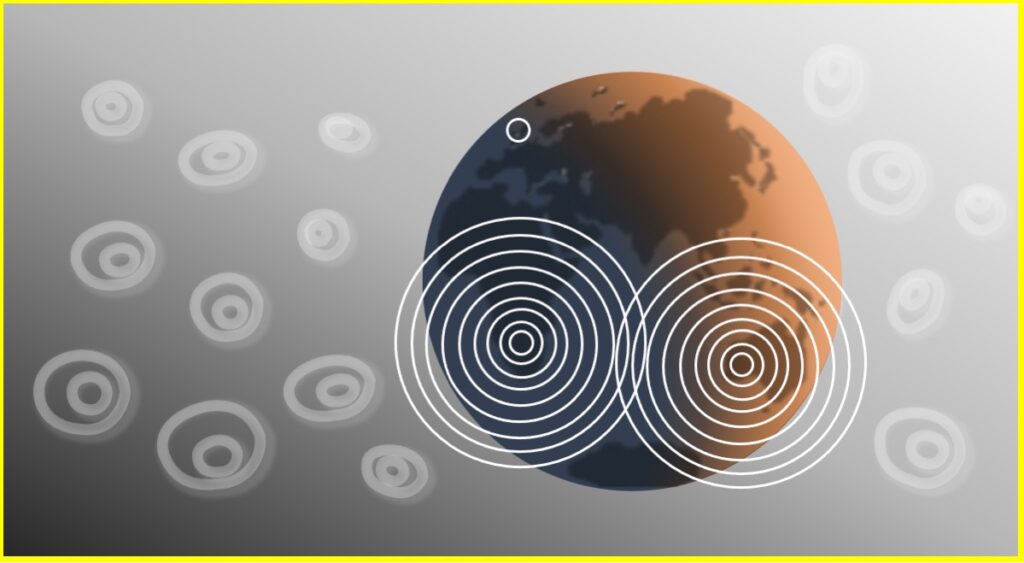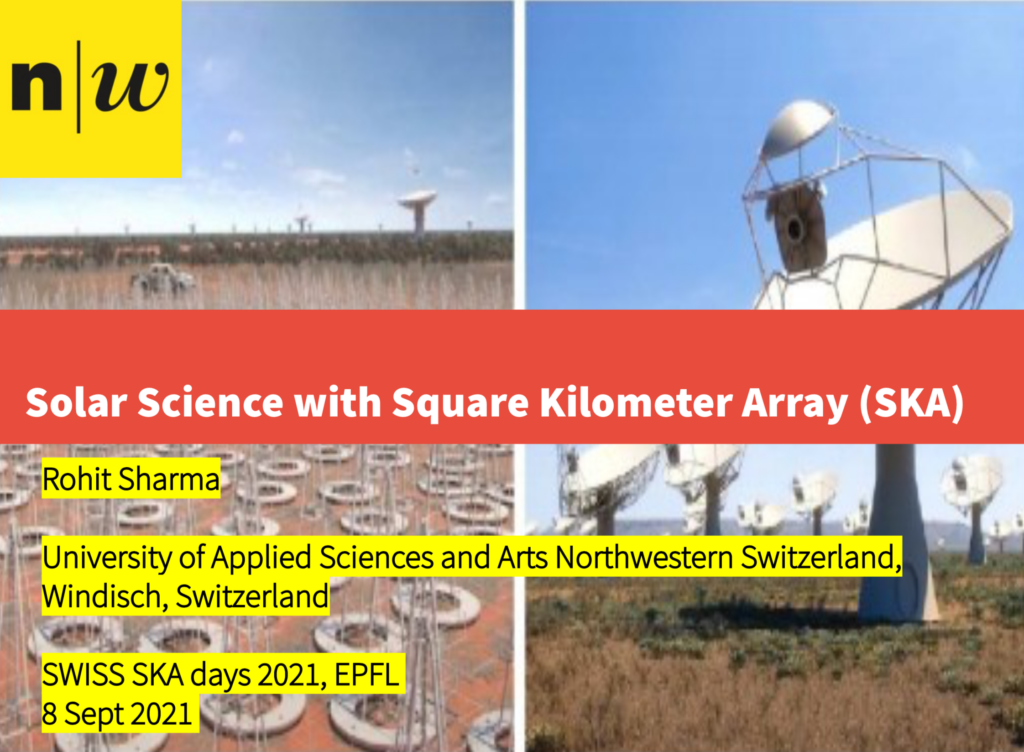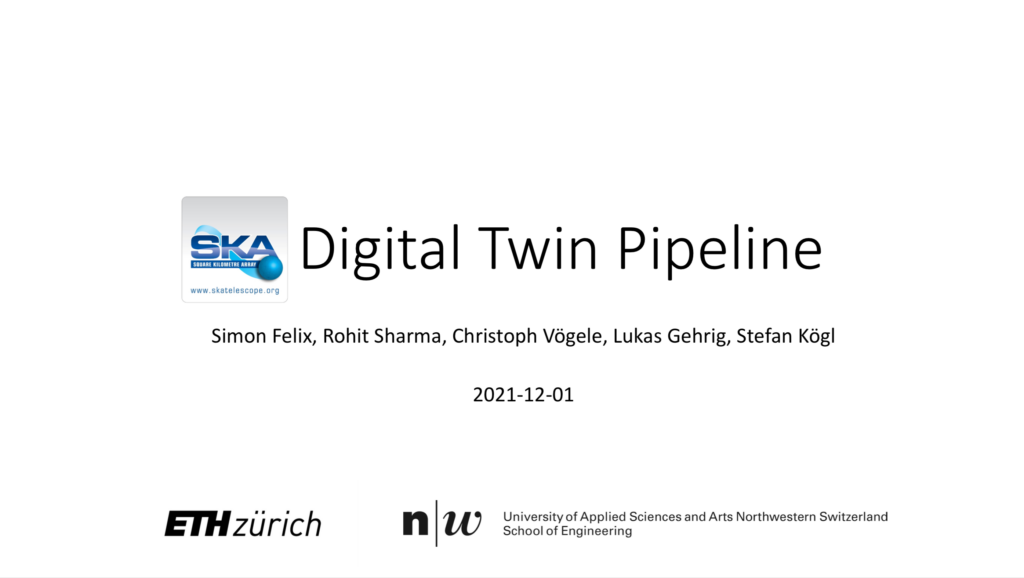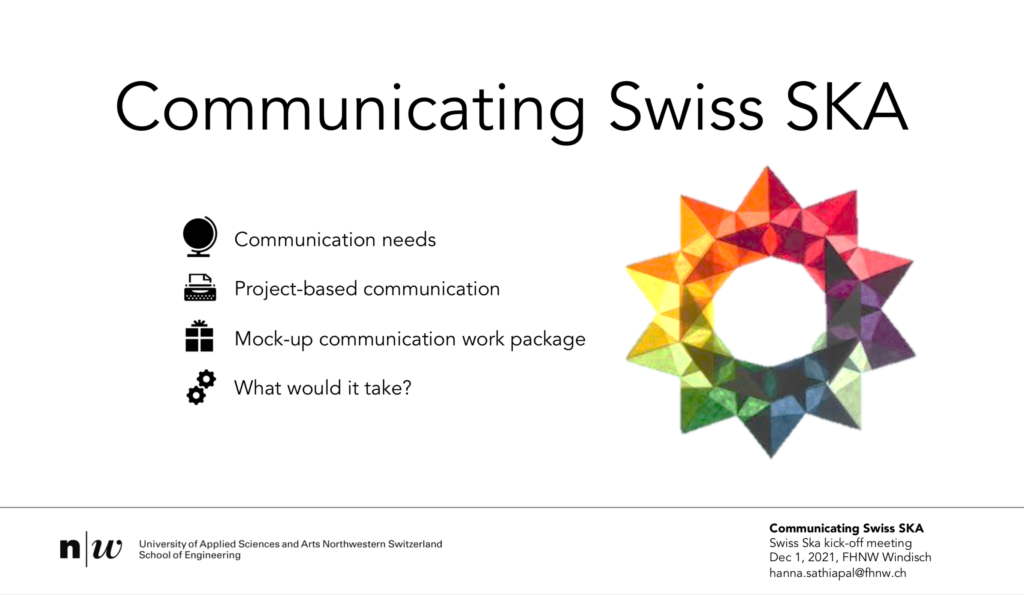SKAO
Square Kilometer Array Observatory
An international effort to build the world’s largest radio telescope with eventually over a square kilometre (one million square metres) of collecting area
ROLE OF THE INSTITUTE FOR DATA SCIENCE
> Partner of the Swiss SKA Consortium
> Member of the SKAO Science and Engineering Advisory Committee
> Member of the European SKA Forum ESKAF
> Coordination of the Swiss SKA Regional Center SRC
> Software for the Swiss SKA Regional Center SRC
> Communication
Project lead at I4DS: Prof. Dr. André Csillaghy
Partners: EPFL, national consortium, Koegl Space and other industrial partners, international organisation
Funding: SERI/SBFI
Start: 2022
Status: in development
Commissioning expected in 2028
Keywords: radio astronomy, data science, SKAO
SUMMARY
The Square Kilometer Array Observatory is the biggest among the new generation of large radio telescopes currently in development. It is part of an encompassing endeavour to study fundamental questions in cosmology, such as how the very first stars and galaxies have been formed just after the big bang, the nature of dark energy and the vast magnetic fields which permeate the cosmos, and even one of the greatest mysteries known to humankind: Are we alone in the Universe?
The new telescopes will deliver huge amounts of data. However, they will not come ready to use. They will be distributed from several regional centres throughout the globe. The Institute for Data Science coordinates the Swiss development process of the regional center near us.
We also work on the development of data pipelines, workflows and data analysis methodologies for the science data products as well as for the SKA Regional Centers. All of this happens long before the first data will be recieved. And we are involved in communication.
PEOPLE @I4DS WORKING ON SKAO
Katja Lapadula
Project Finance Controller
Dr. Rohit Sharma
Solar Physicist
Manuel Stutz
Master Student
OPEN RESOURCES AND RESULTS
PRESS COVERAGE
IMAGES
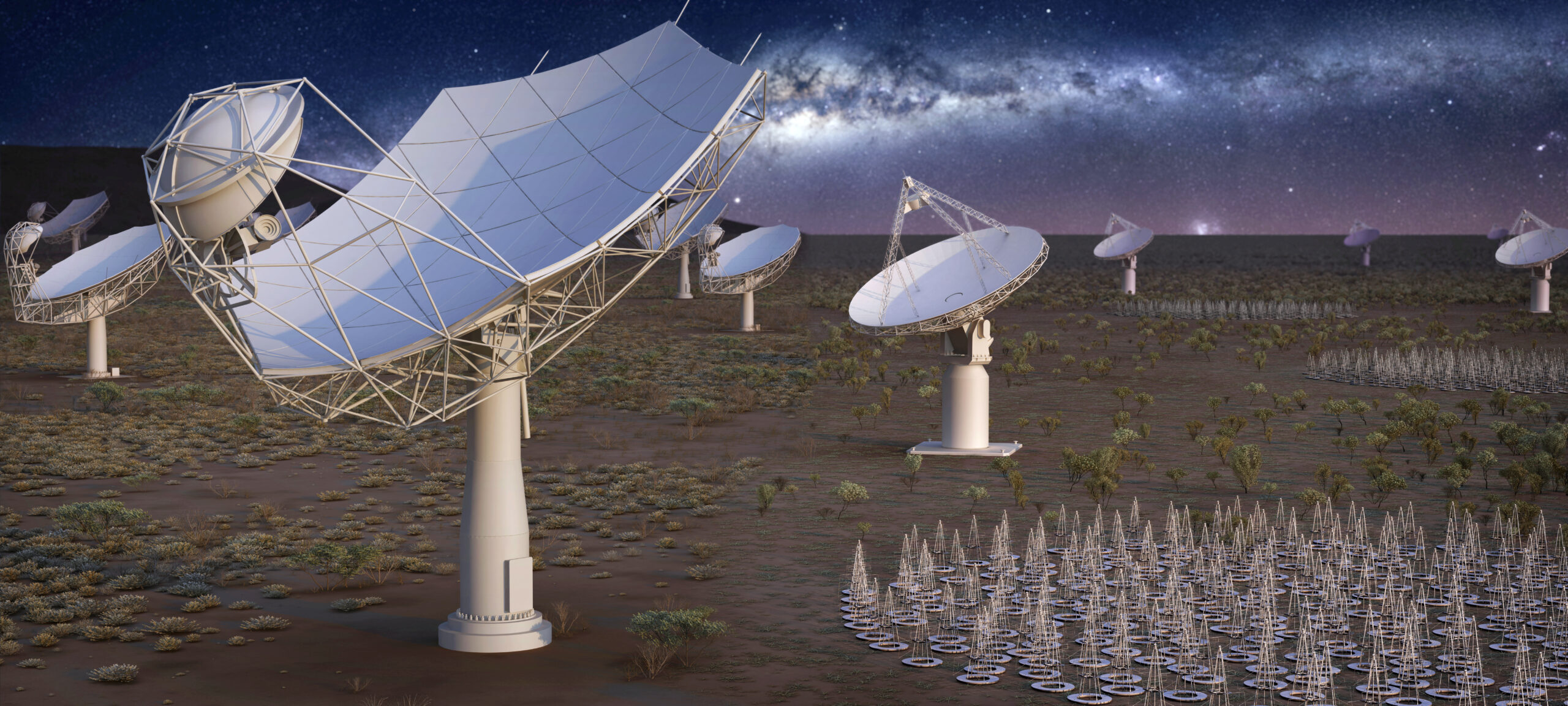
An artist’s impression of SKA at night. Credit: SKA
The Square Kilometre Array (SKA) project is an international effort to build the world’s largest radio telescope. It will consist of thousands of dishes and up to a million low-frequency antennas situated in South Africa and Australia, eventually covering over a square kilometer of collecting area.
